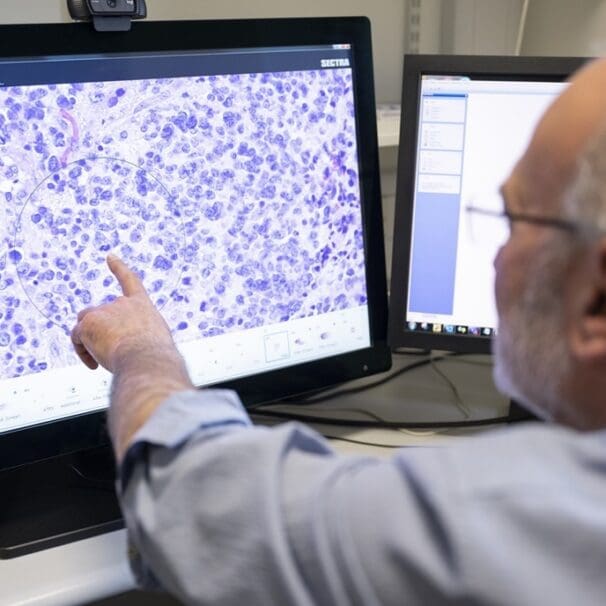HealthProviders DB is a comprehensive database of healthcare providers, including a complete directory of all Neuropathologists.
Pathology Healthcare Taxonomy Code 207ZN0500X
As of today, the following are the total number of Neuropathologists nationally, in your State, and near your location.
Select a State below to view the list by State. Additionally, you can narrow the list by city, among other options, from the Filter Panel, which you can open by clicking the vertical ellipses ⋮ in the upper right corner of the app.
Alaska – Alabama – Armed Forces Pacific – Arkansas – American Samoa – Arizona – California – Colorado – Connecticut – District of Columbia – Delaware – Florida – Federated States of Micronesia – Georgia – Guam – Hawaii – Iowa – Idaho – Illinois – Indiana – Kansas – Kentucky – Louisiana – Massachusetts – Maryland – Maine – Marshall Islands – Michigan – Minnesota – Missouri – Northern Mariana Islands – Mississippi – Montana – North Carolina – North Dakota – Nebraska – New Hampshire – New Jersey – New Mexico – Nevada – New York – Ohio – Oklahoma – Oregon – Pennsylvania – Puerto Rico – Palau – Rhode Island – South Carolina – South Dakota – Tennessee – Texas – Utah – Virginia – Virgin Islands – Vermont – Washington – Wisconsin – West Virginia – Wyoming
Medicare
The following are the total number of Neuropathologists who accept Medicare in your State, the number who have opted out of Medicare, and the total number excluded from participation in Medicare nationwide.
The diagram below shows all the Neuropathologists across the country, represented by blue bubbles. The larger the bubble, the greater the concentration of providers in that area. Red bubbles represent Medicare-excluded providers, with the larger bubbles indicating a higher percentage of excluded providers in that region. You can change the bubble size to be based on exclusions from the Size menu.
What do Neuropathologists do?
Neuropathologists diagnose diseases of the central and peripheral nervous systems, skeletal muscle, and eyes by examining tissue samples, such as biopsy or autopsy specimens.
They identify conditions like brain tumors, infections, and neurodegenerative diseases, providing crucial information to neurologists and neurosurgeons for accurate diagnosis and treatment planning.
Neuropathologists conduct research, contribute to forensic pathology by investigating causes of death, and provide specialized diagnostic services for eye conditions.
What they do
Tissue Diagnosis: Analyzing brain, spinal cord, peripheral nerve, and muscle tissue under a microscope to identify abnormalities.
Disease Classification: Determining if a condition is a tumor, infection, inflammation, or a degenerative disorder like Alzheimer’s or Parkinson’s disease.
Consultation: Working closely with neurologists, neurosurgeons, and other specialists to provide expert diagnostic opinions and assist in treatment planning.
Research: Investigating the underlying biological changes in neurological diseases to develop new diagnostic markers and improve treatments.
Forensic Analysis: Evaluating brain tissue during autopsies to help determine the cause of death.
Collaboration and Expertise
Interdisciplinary Teams: Neuropathologists are essential members of clinical teams, collaborating with doctors in various specialties to provide comprehensive care.
Advanced Techniques: They employ specialized techniques that often integrate tissue findings with those from imaging studies, such as CT scans and MRIs.
Applications of Neuropathology
Neuromuscular Conditions: Diagnosing disorders affecting skeletal muscle and peripheral nerves.
Cancer Diagnosis: Identifying brain and spinal cord tumors and predicting their likely response to treatment.
Dementia Studies: Examining brain changes to understand the progression of diseases like Alzheimer’s.

